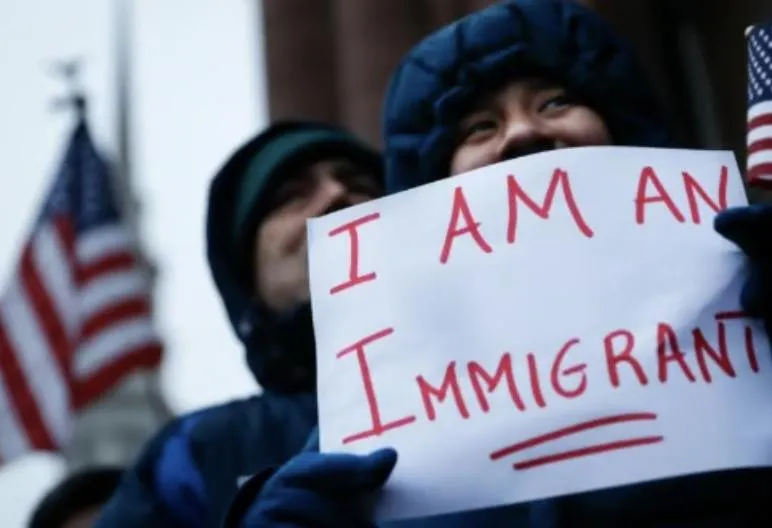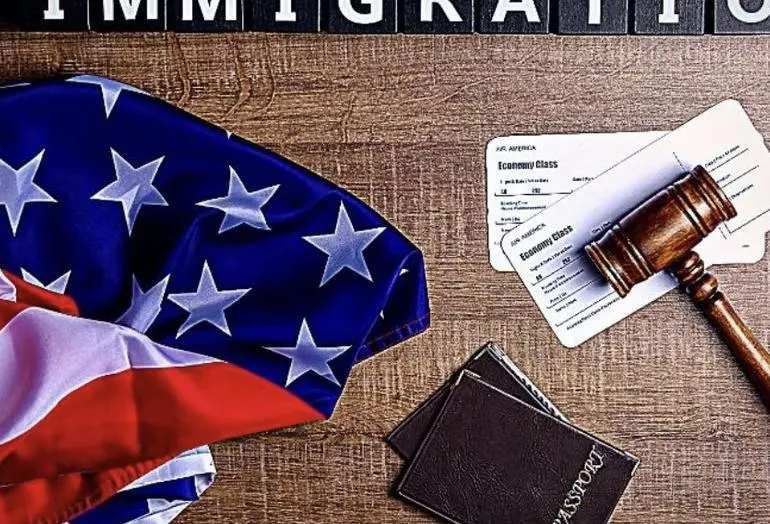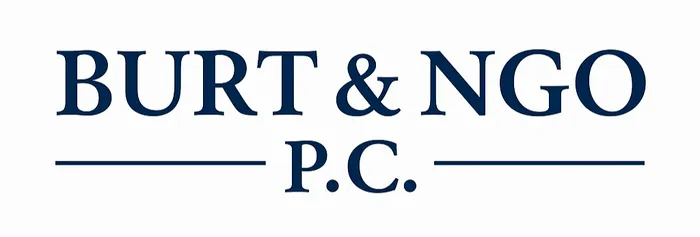Immigration Attorneys
Deportation Defense (Removal Defense)
Facing Deportation? You Have Rights.
DEPORTATION DEFENSE DETAILS
If a Deportation Defense is right for you, schedule an appointment to talk to us.

⚖️ Common Defenses to Deportation:
Asylum or Withholding of Removal
Cancellation of Removal
Adjustment of Status
Waivers of inadmissibility
Prosecutorial discretion or administrative closure.

⚖️ Every Case Deserves a Fierce Defense
Deportation doesn’t have to mean the end of your life in the U.S. At Burt and Ngo, PC, we analyze every possible path to relief — and we fight aggressively to keep you here with your family, your job, and your future.
Don’t wait until it’s too late. The earlier you act, the more options we have.

🛡️ Your Story Deserves to Be Heard
At Burt & Ngo, P.C., we know that behind every deportation case is a person with a life, a family, and a future worth fighting for. Whether you're facing court alone or detained without warning, we’ll fight to protect your rights and present the strongest possible defense. Let us stand between you and removal , and build a legal path forward.
Immigration Solutions Backed by Experience, Built on Trust
At Burt & Ngo, P.C., we don’t just handle immigration cases — we change lives. Whether you're applying for a green card, facing deportation, or fighting to keep your family together, we provide compassionate, strategic legal support every step of the way. With years of proven experience and a deep understanding of complex immigration law, we are here to protect your future and help you build a life in the United States with confidence.

Our Services

Who We Are
Advocates for Immigrants. Allies for Families. Attorneys You Can Trust.
At Burt & Ngo, P.C., we are a dedicated immigration law firm built on compassion, integrity, and results. Our mission is simple: to help individuals and families navigate the immigration system with clarity, confidence, and dignity. Whether you’re seeking protection, pursuing opportunity, or facing uncertainty, we stand by your side with personalized legal strategies and unwavering support.
Frequently Asked Questions (FAQ)
Welcome to our comprehensive Immigration Law Q&A page. Whether you're exploring your options or already working with an attorney, the answers below are designed to help you understand the immigration process and how Burt & Ngo, P.C. can support you.
Do I need an immigration lawyer?
While it is possible to apply for some immigration benefits without an attorney, immigration law is highly complex. An attorney ensures your application is complete, timely, and positioned for success, especially if your case involves past immigration violations, criminal history, or inadmissibility.
How much does it cost to hire an immigration lawyer?
At Burt & Ngo, P.C., we offer transparent flat-fee pricing for most services. Costs vary depending on the type of case (e.g., green card, asylum, U visa). Please see our pricing page for specific rates.
Can I work with your firm if I live in another state?
Yes. Immigration law is federal, so we can represent clients in all 50 states. We conduct meetings by phone, Zoom, or WhatsApp.
How long does the immigration process usually take?
Yes. Immigration law is federal, so we can represent clients in all 50 states. We conduct meetings by phone, Zoom, or WhatsApp.
What happens if my application gets denied?
Many decisions can be appealed or reopened. We'll evaluate your denial and advise you on next steps, which could include motions to reconsider, appeals, or refiling.
Do you handle immigration court cases?
Yes, we represent individuals in removal proceedings, bond hearings, cancellation of removal, and more.
Can you help undocumented immigrants?
Absolutely. Many undocumented individuals qualify for relief through VAWA, U visas, asylum, or cancellation of removal. Each case is unique.
Green Card & Adjustment of Status
What is a green card?
A green card (lawful permanent residence) allows you to live and work in the U.S. permanently. You may obtain one through family, employment, asylum, or other special categories.
What’s the difference between adjustment of status and consular processing?
Adjustment of status is done inside the U.S. Consular processing involves attending an interview at a U.S. embassy abroad. Your eligibility and location determine which process is appropriate.
How long does it take to get a green card?
Timelines vary by case type. For immediate relatives of U.S. citizens, the process may take 8–14 months. For others, such as siblings or married adult children, the wait can be several years.
What happens after I get my green card?
You'll be a lawful permanent resident, free to work and travel. In most cases, you can apply for U.S. citizenship after 3–5 years.
Can my spouse or children get a green card too?
Yes. Immediate relatives may be eligible as derivatives, depending on your status and the type of application.
Work Visas & Employment-Based Immigration
Can I get a work visa without a job offer?
Most employment-based visas (H-1B, L-1, etc.) require a U.S. employer sponsor. However, certain visas like the EB-1 for extraordinary ability or investor visas (E-2) may not.
Can I switch employers on a work visa?
It depends on your visa type. Some require new employer sponsorship and USCIS approval before switching.
What is the H-1B cap and lottery?
The H-1B visa has a numerical cap and uses a lottery system. Registrations are submitted in March for each fiscal year.
Can students on F-1 visas work?
Yes, but with restrictions. On-campus jobs are allowed. Off-campus employment like OPT or CPT must be authorized by your school and USCIS.
Can I change status from visitor visa to work visa?
In some cases, yes. This process requires careful legal analysis and approval by USCIS.
Removal Defense
& Immigration Court
What should I do if I get a Notice to Appear (NTA)?
Contact an immigration attorney immediately. An NTA means removal proceedings have been initiated. Timely legal response is critical.
Can I apply for a green card while in removal proceedings?
Yes, in some cases. You may be eligible through cancellation of removal, asylum, or adjustment based on marriage to a U.S. citizen.
Can I reopen my case if I already have a deportation order?
Possibly. If there is new evidence or legal error, a motion to reopen may be filed. Deadlines are strict, so contact an attorney promptly.
Can I ask the court to close my case?
Yes, through prosecutorial discretion or administrative closure. Eligibility depends on your background and immigration history.
Humanitarian Options (VAWA, U Visa, Asylum)
What is VAWA?
The Violence Against Women Act allows abused spouses, children, or parents of U.S. citizens or permanent residents to apply for lawful status without the abuser's involvement.
What is a U Visa?
The U Visa is for victims of serious crimes who cooperate with law enforcement. It provides work authorization and a path to a green card.
Can I apply for asylum after being in the U.S. for over a year?
Generally, asylum must be filed within 1 year of arrival. However, there are exceptions for changed or extraordinary circumstances.
Will applying for asylum trigger deportation?
Not typically. Affirmative asylum applications are processed by USCIS. If denied and you're out of status, your case may be referred to immigration court.
Can I apply for a work permit with VAWA or a U visa?
Yes. Both VAWA and U visa applicants may qualify for work permits at specific stages in the process.
Citizenship & Naturalization
When can I apply for U.S. citizenship?
Most green card holders can apply after 5 years (or 3 years if married to a U.S. citizen). You must also meet physical presence, residence, and moral character requirements.
What’s on the naturalization test?
The test includes questions about U.S. history, government, and basic English. USCIS provides free study materials.
Can I travel while my naturalization is pending?
Yes, as long as you maintain residency and return in time for your interview and oath ceremony.
Can I pass the test if I don’t speak English well?
You may qualify for a language exemption if you are over a certain age and have had a green card for many years. We can help determine your eligibility.
What if I have a criminal record? Can I still apply for citizenship?
It depends on the offense and how long ago it occurred. Some crimes result in a denial or removal. Consult an attorney before filing.
Financial & Procedural
Can I pay your fees in installments?
Yes, many of our services offer 3–5 month payment plans.
What forms of payment do you accept?
We accept credit/debit cards, Zelle, bank transfers, and cash.
Do you offer free consultations?
We offer affordable, low-cost initial consultations. In some cases, fees are credited toward your service if you hire us.
Can I get a refund if my case is denied?
Our fees are for legal services rendered and are generally non-refundable. We explain all terms clearly in our agreement.
Will you remind me of my deadlines?
Yes. We maintain a detailed case calendar and notify you of every important milestone or document request.
